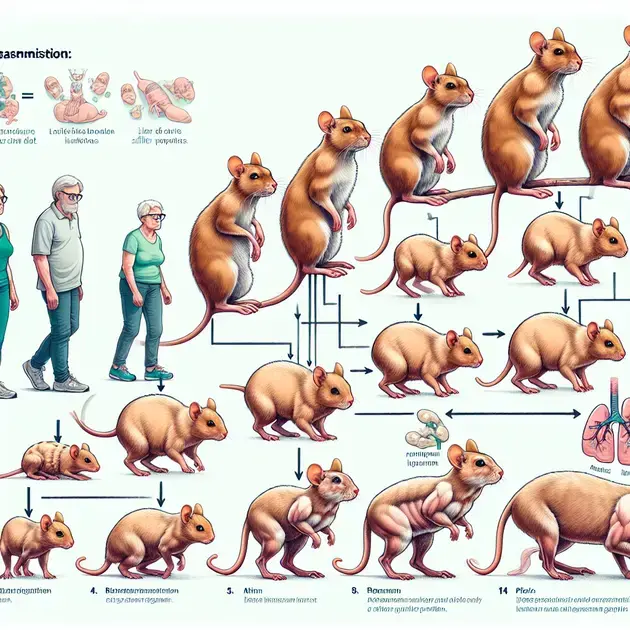
“`html
The Intergenerational Effects of Malnutrition: Insights from Animal Studies
Malnutrition is a pressing global issue that affects millions, particularly in vulnerable populations where access to nutritious food is limited. A recent groundbreaking study on animals raises critical questions about the long-term implications of malnutrition, suggesting that its effects can transcend generations. This research reveals that a protein-deficient diet in one generation can lead to a host of related health risks in offspring that persist for up to four generations.
Understanding Malnutrition and Its Impact
Malnutrition fundamentally refers to deficiencies, excesses, or imbalances in a person’s intake of energy and nutrients. When individuals, particularly during critical developmental periods, do not receive adequate proteins, vitamins, and minerals, it can lead to immediate health issues and developmental delays. However, this study sheds light on a more profound concern: the lasting impact of these nutritional deficits beyond the immediate effects.
Key Findings of the Study
The study highlights how a protein-deficient diet in one generation can result in:
- Lower Birth Weight: The first generation of offspring born to protein-deficient parents exhibited significantly lower birth weights. Birth weight is a crucial indicator of health at birth and can influence longevity and overall health outcomes throughout life.
- Smaller Kidneys: Alongside reduced birth weight, the offspring showed smaller kidney sizes. Kidney health is inherently linked to systemic health, and smaller kidneys can indicate potential future health complications, particularly related to renal function.
These traits were not just confined to the immediate offspring but were noted across multiple generations, extending the impact to up to four generations in the study subjects. This suggests a profound and disturbing possibility that the health implications of malnutrition could be hereditary.
Mechanisms Behind Intergenerational Effects
While the precise biological mechanisms remain a subject for further research, the implications may involve epigenetic changes — modifications in gene expression that do not alter the DNA sequence but can be influenced by environmental factors like nutrition. These changes could be passed down to subsequent generations, potentially explaining why descendants of malnourished individuals display similar health risks.
Implications for Public Health and Policy
The insights gained from this animal study have significant ramifications for public health policy. Firstly, they underscore the urgent need for nutritious food access for vulnerable populations, particularly during pregnancy and early childhood, which are critical periods for development. Failure to provide adequate nutrition could have complex, long-lasting consequences that extend beyond the immediate health of individuals, altering the health trajectory of future generations.
Conclusion
The findings from this research highlight the intricate connection between nutrition and generational health outcomes. As we grapple with global malnutrition, understanding the potential for intergenerational effects necessitates a holistic approach to public health. By addressing the nutritional needs of today, we are also safeguarding the health of tomorrow’s generations, emphasizing the need for continued research and action in combating malnutrition on a global scale.
Is it possible to transmit the effects of malnutrition? A recent animal study discovered that a protein-deficient diet in one generation resulted in associated health risks, such as lower birth weight and smaller kidneys, in offspring that persisted for four generations.
“`